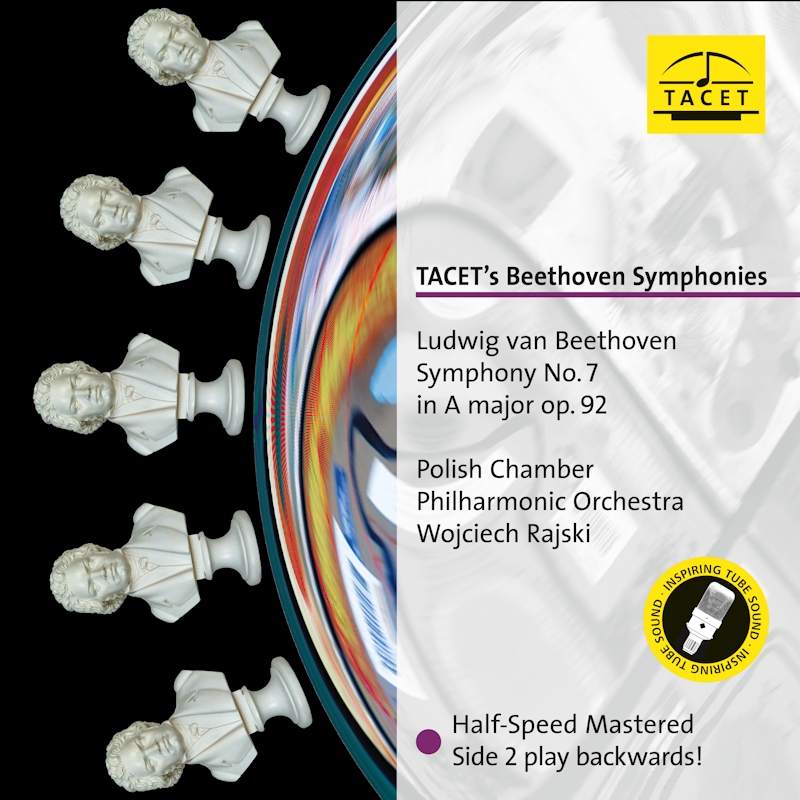Logowanie
OSTATNIE EGZEMPLARZE
Jakość LABORATORYJNA!
ORFF, Gundula Janowitz, Gerhard Stolze, Dietrich-Fischer Dieskau, Deutsche Oper Berlin, Eugen Jochum
Carmina Burana
ESOTERIC - NUMER JEDEN W ŚWIECIE AUDIOFILII I MELOMANÓW - SACD HYBR
Winylowy niezbędnik
ClearAudio
Essence MC
kumulacja zoptymalizowana: najlepsze z najważniejszych i najważniejsze z najlepszych cech przetworników Clearaudio
Direct-To-Disc
PIAZZOLLA, ChamberJam Europe
Tangos del Ángel y del Diablo
Direct-to-Disc ( D2D ) - Numbered Limited Edition
SCHUBERT, DEBUSSY, FRANCK, ROSSINI, Berliner Philharmoniker, Carlo Maria Giulini
Symphony No. 4 / La Mer / Semiramide / Psyche et Eros
- 1. Semiramide: Overture (12:57)
2. Symphony No. 4 in C minor ("Tragic"), D. 417 (27:35)
3. Psyche: Psyche et Eros (9:42)
4. La Mer, symphonic sketches (3) for orchestra, L. 109 (24:32)
- Berliner Philharmoniker - orchestra
- Carlo Maria Giulini - conductor
- SCHUBERT
- DEBUSSY
- FRANCK
- ROSSINI
"The concert of 13 February 1969 at the Berlin Philharmonic has Carlo Maria Giulini (1914-2005) once more at the helm, now leading a program that traverses the early Romantic period through Impressionism, always informed by Giulinis sensual intelligence of expression and innate colorful lyricism." Gary Lemco, AudiophileAudition
In February 1969 Giulini presented a programme with a particularly intelligent compilation. Rossini's overture to Semiramide, Symphony No.4 by Schubert, Psyché et Éros by César Franck and La Mer (Debussy) outlined the development from classical music to Impressionism, with each composition already relating to the next one. On 15 February 1969 Joachim Matzner's critique in Die Welt was entitled "Drama and utmost sensitivity". He went on to say that there was hardly another conductor who could combine a melody so sensitively with dramatic tension. "All the melodic phrases, no matter how aristocratic and subtle his conducting, were threedimensional, the counterpoints, rather than being just an additional part were true to their name, defining accents were deployed. And yet, even when the music was intensified almost to the limit, in Giulini's hands it sounded fundamentally unostentatious neither blurred nor conspicuous. His rendering of Debussy's La Mer in all its marvellous flexibility, its transparency, its colours that never took on a life of their own, made it one of the grandest events to have been put on in Berlin's concert halls for many a year." On 21 February 1969 Rudolph Ganz, writing in the Frankfurter Rundschau, started by praising the intelligent compilation of the programme. Of the overture to Semiramide he wrote that it was no jolly piece of noise but a paragon of precision; Schubert's Symphony No.4, dubbed by the composer the 'Tragic', was just that neither pompous nor bathetic, but nervous and tense. The romantic climax was Franck's brief fragment Psyché et Éros and Eros and the thrilling finale was La Mer, which was "... extraordinarily animated and vivid. Here again Giulini's tense precision that missed not a single detail of the score was paramount, yet he coaxed a supreme performance from the musicians of the Philharmonic Orchestra."
From the booklet note by Helge Grünewald

























